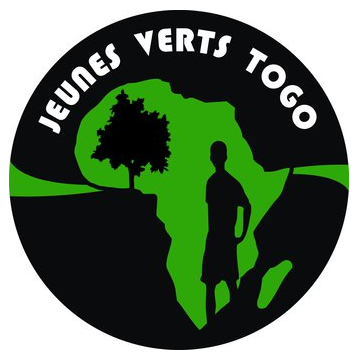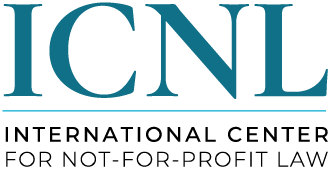Recommendations for Stakeholders
- Active Citizenship:
Citizens should actively participate in civic processes, engage with civil society, and exercise their democratic rights responsibly. Informed and active citizenship is fundamental to the protection and expansion of civic space.
- Peaceful Advocacy:
Engage in peaceful advocacy for the protection of civic freedoms. Non-violent demonstrations, social media campaigns, and other peaceful actions can draw attention to civic space issues.
- Support Civil Society Initiatives:
Support local civil society initiatives through participation, volunteering, or financial contributions. Citizens' involvement strengthens the capacity and impact of civil society in advocating for civic space.
Here are some suggested resources for promoting active citizenship, peaceful advocacy, and supporting civil society initiatives:Active Citizenship:
- iCivics provides free civics lessons and games to teach students how government works and how to participate.
- Mikva Challenge engages youth in activism and campaigns for issues they care about.
- DoSomething.org has volunteer opportunities and campaigns for young people to take action on causes.
Peaceful Advocacy:
- Amnesty International offers human rights education and nonviolent activism training.
- ICNC provides resources on civil resistance and nonviolent movements.
- Beautiful Rising shares case studies, tactics, and principles for nonviolent activism.
- Uphold Democratic Principles:
Governments should reaffirm their commitment to democratic principles, respecting the rights enshrined in their constitutions and international agreements. This includes actively promoting and protecting freedoms of expression, assembly, and association.
- Ensure Judicial Independence:
Strengthen judicial independence to ensure that the judiciary acts as a check on executive power. Implement reforms to guarantee fair and impartial legal processes, reducing corruption and promoting accountability.
- Create Inclusive Political Processes:
Foster inclusive political processes by ensuring fair voter registration, transparent vote counting, and creating an environment where opposition parties can participate without fear of harassment. This will contribute to building a more stable and inclusive political landscape.
- Facilitate Civil Society Participation:
Actively involve civil society organizations in policymaking processes. Governments should hold meaningful public consultations, valuing the input of civil society in decision-making. Implement reforms to create an environment where CSOs can operate freely without fear of harassment or arbitrary restrictions.
- Address Human Rights Abuses:
Take decisive actions to address human rights abuses, particularly those perpetrated by security forces. Implement measures to strengthen oversight mechanisms, protect minorities, women, and marginalized communities, and ensure access to justice for all citizens.
- Enhance Transparency and Digital Rights:
Prioritize transparency by making government information accessible to the public. Implement and enforce access to information laws and ensure protections for whistleblowers. Additionally, safeguard digital rights by avoiding unnecessary restrictions on internet access and protecting user privacy.
Here are some suggestions for resources related to the recommendations for governments:Uphold Democratic Principles:
- The OECD has resources on upholding integrity and democratic values in the public sector.
- International IDEA's State of Democracy framework helps assess adherence to democratic principles.
- The UN Office of the High Commissioner for Human Rights provides guidance on democratic governance.
Ensure Judicial Independence:
- The UN Office on Drugs and Crime has a judicial integrity toolkit with guidance on strengthening judicial independence.
- The International Bar Association offers resources on judicial systems reform and rule of law.
- The World Justice Project has a Rule of Law Index that assesses judicial independence.
Create Inclusive Political Processes:
- The Carter Center provides election observation recommendations to improve electoral processes.
- International IDEA has resources on inclusive political participation and representation.
- The UNDP offers guidance on strengthening electoral integrity.
Facilitate Civil Society Participation:
- The OECD has a Toolkit for Civil Society Organizations on engaging in policy processes.
- The World Bank offers guidance on facilitating policy dialogue with civil society.
- The UN OHCHR provides resources for governments on creating an enabling environment for civil society.
Address Human Rights Abuses:
- The UN OHCHR has guidance on accountability for human rights violations.
- Human Rights Watch offers recommendations on reforming abusive security forces.
- The International Center for Transitional Justice has resources on truth and reconciliation processes.
Enhance Transparency and Digital Rights:
- The Open Government Partnership provides guidance on open government data policies.
- The UN Special Rapporteur on freedom of expression has reports on protecting digital rights.
- Access Now offers recommendations on avoiding internet shutdowns.
International community and development partners
- Promote Diplomacy:
International actors, including governments and intergovernmental organizations, should use diplomatic channels to advocate for the protection of civic space. Engage with governments in the region to address specific concerns and encourage reforms.
- Financial Support:
Provide financial support to local civil society initiatives. Funding is often a critical factor for the sustainability and effectiveness of civil society activities.
- Human Rights Monitoring:
Establish robust human rights monitoring mechanisms to assess and report on the state of civic space in West Africa. This information can inform international policy responses and diplomatic engagements.
- Capacity Building:
Offer technical assistance and capacity-building programs to governments and civil society. This support can enhance governance structures, strengthen judicial systems, and promote human rights standards.
- Enforce Regional Human Rights Standards:
Regional organizations, such as the Economic Community of West African States (ECOWAS), should actively enforce regional human rights standards. Ensure that member states adhere to the provisions of regional agreements that protect civic space.
- Mediation and Conflict Resolution:
Intervene in situations where there are threats to civic space, employing mediation and conflict resolution mechanisms. Timely interventions can prevent the escalation of conflicts and protect the rights of citizens.
- Promote Best Practices:
Highlight and promote best practices in countries that have successfully protected and expanded civic space. Creating a platform for sharing success stories can encourage positive reforms in other member states.
- Promote Freedom of the Press:
Media organizations play a crucial role in defending civic space. Journalists should collaborate to advocate for the protection of press freedom, and media houses should provide comprehensive coverage of civic space issues.
- Responsible Reporting:
Uphold journalistic ethics by providing accurate and unbiased reporting. Responsible journalism contributes to public awareness and understanding of civic space challenges.
- Amplify Civil Society Voices:
Act as a platform to amplify the voices of civil society. Provide coverage and support for civil society initiatives, ensuring that their messages reach a wider audience.
Here are some suggestions for resources and initiatives to support media organizations in defending civic space and amplifying civil society voices in West Africa:
- The West Africa Civil Society Institute's (WACSI) Civic Space Resource Hub provides capacity building, resources and technical support to media and CSOs on civic space issues.
- The Media Foundation for West Africa offers training programs on investigative reporting, safety of journalists, and monitoring attacks on press freedom.
- Paradigm Initiative runs digital rights programs to advocate for online press freedom and safety of digital journalists.
- Civicus Monitor tracks and reports on threats to civic freedoms including press freedom across West Africa.
- Article 19 and Committee to Protect Journalists document and report on violations against the press and promote press freedom.
- UNESCO's IPDC provides funding for media development projects promoting press freedom, safety of journalists and media pluralism.
- Journalist associations like the Ghana Journalists Association and Union of Journalists Côte d'Ivoire advocate for press freedom and protection of journalists.



